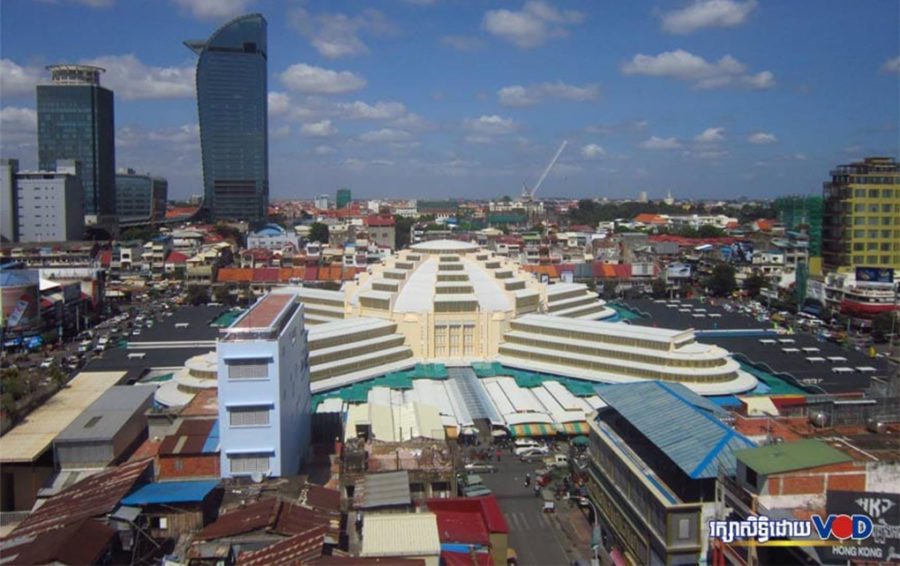The World Bank has warned of the economic risks of Cambodia losing preferential trade access to the European Union, and urged the government to be ready with measures to mitigate the potential shocks to the economy.
In its East Asia and Pacific Economic Update released Wednesday, the World Bank said the Cambodian economy had exceeded expectations last year on the back of garment and footwear exports. But a cancellation of the EU’s Everything But Arms (EBA) scheme, it said, would put a damper on this growth.
“The EU market currently accounts for more than a third of Cambodia’s key exports (including garments, footwear and bicycles),” the report said. “Therefore, losing EBA preferences, which currently provide Cambodia duty-free and quota- free access to the EU, would likely result in slower export growth.”
Spurred by what it has characterized as deterioration in Cambodia’s democratic space, the E.U. in February began an evaluation of Cambodia’s democratic and human rights situation that could lead to the suspension of the EBA.
The World Bank report, which nevertheless projected robust 7 percent growth for Cambodia for the year, also cited two other risks to the country’s economy.
Cambodia is heavily reliant on imports from China, it noted, making it vulnerable to any downturns in China, while the financial sector is “overextended.”
“[T]he surge in capital inflows and credit, which has financed the construction and real estate boom, has also overextended the financial sector,” the report said.
To minimize macroeconomic vulnerability, the World Bank said that the government should rein in the public payroll and increase oversight of the financial sector to limit the exposure of banks to instability in real estate.
Reducing business costs — including by lowering electricity and shipping prices — would also help the economy remain competitive, the report said.
Commerce Ministry spokesman Seang Thay said that the government already had several measures ready to respond to the potential loss of the EBA.
“Regarding their estimations, we do not say it is wrong or right and we also understand that the EBA has been helpful to us in the past. We do not say it was not useful — even our leaders have stated that it was useful to us,” Thay said. “And we are also ready to take action to mitigate [the effects] if this happens.”
Prime Minister Hun Sen has repeatedly said that he does not care if the EBA is withdrawn, claiming that Cambodia “will not die” if it is withdrawn from the program and “ will not become rich” if Europe decided not to cut the program.
He has also described the EBA withdrawal as a potential chance for growth.
The U.S. too is considering withdrawing preferential trade access offered to Cambodia under the Generalized System of Preferences (GSP) scheme.
In January, Hun Sen announced a streamlining of customs procedures and district-level ministerial offices, a reduction in electricity prices and tax exemptions for agricultural enterprises for five years as part of reforms to improve economic competitiveness in the face of trade pressures.
“A campaign to strengthen Cambodia’s independence will help our business sector in certain ways, and even without preferential access, Cambodia will still survive,” Hun Sen said at the time.
However, others, including the exiled political analyst Kim Sok, have cautioned against becoming over reliant on Chinese trade and investment.
“If the E.U. decides to withdraw the EBA tariff [program] and the U.S. decides to withdraw the GSP from Cambodia, I think that Cambodia’s difficult situation will suffer as a kind of new colony under Chinese power, and Cambodian people may fall into the slums of Chinese loans,” Sok said earlier this month.
The Finance Ministry has said China was Cambodia’s largest creditor, with $3.4 billion out of $7 billion total public debt owed to China by the end of 2018.
(Translated and edited from the original article on VOD Khmer)













